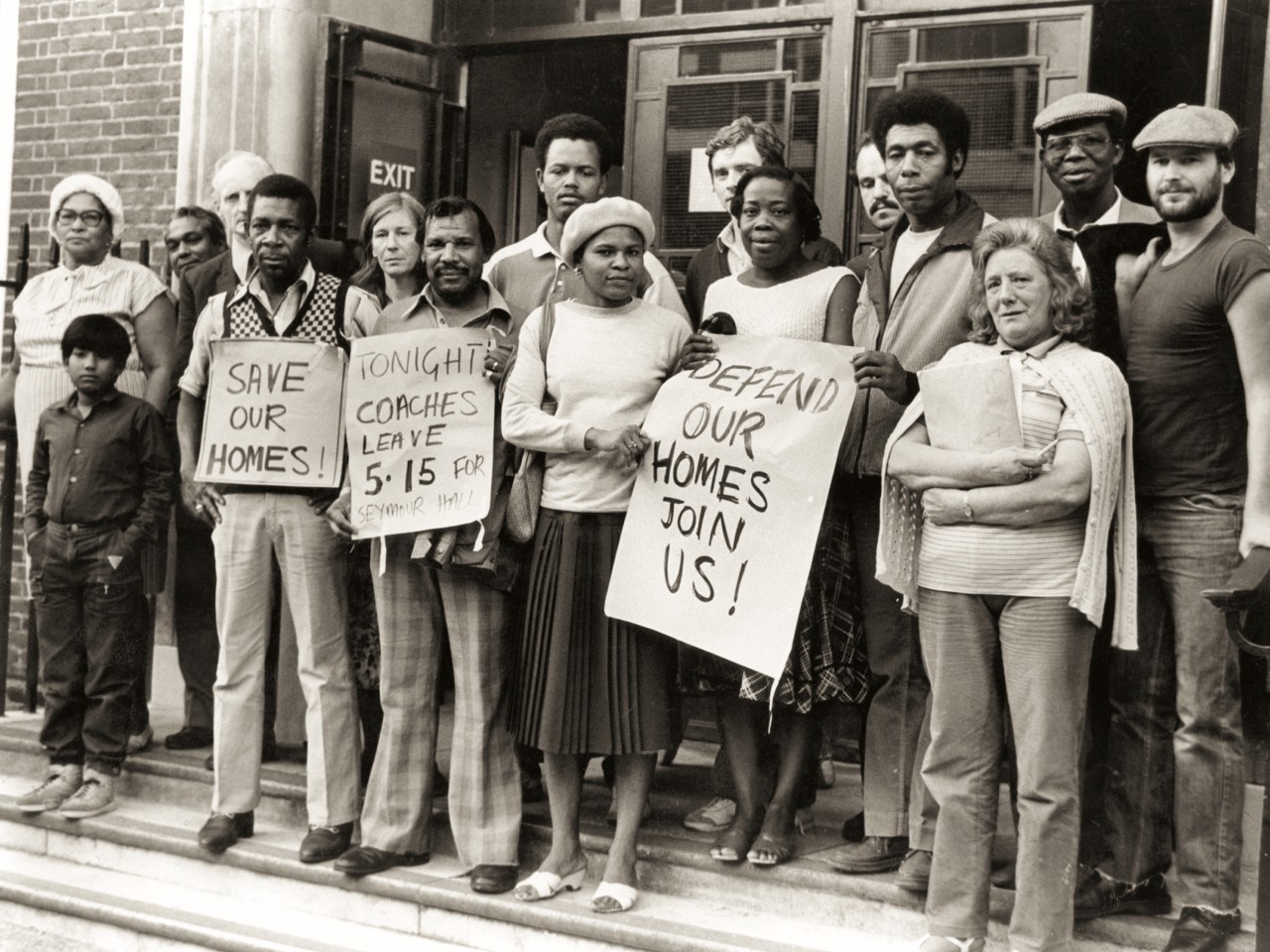Back of the net!
 The Football Governance Act is now law. Campbell Tickell Partner, Greg Campbell, explores with Fair Game CEO, Niall Couper, what this means for English men’s football.
The Football Governance Act is now law. Campbell Tickell Partner, Greg Campbell, explores with Fair Game CEO, Niall Couper, what this means for English men’s football.
All questions by Greg Campbell.
Welcome, Niall. Exciting times, as we now have the Football Governance Act on the statute book. It has been quite a journey, and Fair Game has been absolutely fundamental to making this happen. And you more than anybody have driven this, Niall.
NC
Thank you, Greg. It means an awful lot to me because very rarely do you get a chance to stop and look back at what’s actually happened. There are lots of people who have helped on the journey.
Honestly, I still haven’t really taken it all in.
But where are we going now? We need to think about the development of the governance code, how we develop a proper financial distribution system, how we define fan engagement, and all the other things that will make up the future. They were all hypotheticals. And now they have become reality.
That’s a big deal.
While I am still exhausted by everything, my brain’s now buzzing, going how would this formula work and have we ticked all the boxes? Are we speaking to the right people? Are we actually going to be able to deliver that vision of a fair future for football, the path we’ve been on for over 4½ years.
There is now an external ability and holistic oversight that was never there before. It’s an opportunity to show something that matters to the person in the street, that people are trying to do things the right way.
GC
Absolutely right. I’m not going to be unrealistic and say I hope it means no more clubs collapsing like Bury and Morecambe and Southend and Reading and Sheffield Wednesday. But there is a path to something different and much better.
1. What do you see as the next key elements in the programme, as it progresses towards reality with the new regulator?
NC
It’s been interesting in the short time since the Act was passed that the conversations have already turned towards the key definitions to be developed within the football regulator’s remit, like financial sustainability.
What is financial sustainability? The Act talks about ensuring competitive balance, but what actually is that? It talks about fan consultation – what does that look like in practice?
I can give you my definitions, but Fair Game’s approach has always been to bring other people in and aim to get to agreed definitions.
We do know there will be a governance code and a ‘state of the game’ report. And Greg, as you know, with the governance code, I think we’ve got to a very good place. We’ve had a conversation with the regulator that was really promising. They’re aware of the work that’s gone into the Fair Game Governance Code and they hope they can take much of that forward. And for the ‘state of the game’ report, we have our Fair Game Index, which hopefully addresses many of those questions.
Turning to financial sustainability, I’ve had conversations with leading football economists, and we are putting Fair Game’s financial model under scrutiny. For instance, we are exploring the financial cliff edges between divisions, which is one of the biggest problems for football’s sustainability.
The greatest day to day challenge is cash flow, ensuring clubs have the ability to survive not just tomorrow, but the next few months. If you look at the problems experienced at Morecambe or Sheffield Wednesday or Reading and so on, it’s that point when you suddenly go “we can’t pay the bills any more” and you need to look for a situation where a club has a guarantee and the fans have a guarantee that there is an accessible resource.
2. There will be huge challenges for the existing institutions around the game, including the FA, Premier League, EFL, National League. How do you see the challenges being addressed?
NC
We need to see those four bodies thinking holistically about what is for the benefit of football.
Across the pyramid, there is a sense that these bodies act simply in the interests of their members. The FA is slightly different, covering the national team and the leagues below the National League. There are huge differences in the levels of clubs’ resource and expertise. We need these bodies to think about not just what’s good for Spurs, but also what’s good for Dorking Wanderers, that benefits the community clubs that embed and get people in this country passionate about the game.
Fair Game’s view is there is enough money around the game to meet this challenge, but it’s about that redistribution being brave. That’s the big challenge for those four institutions, because the reality is that people will be cross because they’re not going to get same level of finances. But we need to ensure the whole game is financially sustainable, not just individual clubs.
3. Where do you see the challenges for clubs as the regulatory regime unfolds? For instance, some like Lincoln City, who are not a big outfit, to their credit have done a lot of work to ensure they are regulation-ready. But I think they’re an outlier.
NC
Lincoln are doing really good things in areas where many clubs have problems. Of course, resourcing the challenge of meeting regulator expectations will be greatest further down the pyramid.
That said, the EFL and Premier League already have reporting mechanisms around real-time financial reporting that with a few tweaks the regulator could lift and adjust. So at least in theory the transition for clubs at those levels shouldn’t be too burdensome.
The National League will be different, and clubs there will definitely need support from the regulator. The big issue is that drop-down to the National League, where that mandatory reporting and the of a governance code don’t exist. The regulator needs to come in and offer strong support and advice. Then we’ll see a regulation system works for the whole football pyramid.
What’s more, the financial burden of adapting to the new system could be a breaking point for some clubs that exist with minimal staffing and a lot of keen volunteers.
The cost of support here in Fair Game’s view would just equate to few crumbs from the Premier League. The flip side of all this is that regulation should actually be welcomed at that level, because there is a recognised need for proper processes, auditing systems, understanding of how football clubs can operate, and a proper oversight to help clubs avoid problems and run more smoothly. That will be beneficial not just for clubs, but for communities too.
4. The Code of Governance is obviously dear to our hearts at CT because we’ve been working with Fair Game colleagues to develop a code Fair Game and its member clubs feel would be workable. Do you see the regulator in a similar place in what the code needs to cover?
NC
For example, we’ve set out three bandings according to different sizes of clubs, because plainly what one can expect a Premier League club to comply with is not the same as one can expect of a National League club.
We’ve had our first proper conversation with the regulator looking at this. Our sense is the Fair Game Code can only help. The regulator needs some support and insight and we’ve sought to offer that. We believe our code provides a really good starting template, which the regulator could take off the shelf.
Is this likely? Well, they’ve still got to appoint a board that will look at that direction of travel, but the staff, of which they have now about 30, are fully aware of our code.
5. On the subject of fans, what will they notice about regulation, and how will it feel for them?
NC
This is partly about big definitions: what is a fan and what is fan engagement?
There’s a lot in the Act about fan consultation but it’s not clear enough. We’re talking about fans having a proper say in overseeing the strategy of a club, access potentially to boardrooms and consultation on areas like club colours, club name, badge, location. So we need a process for identifying who is involved.
For instance, you could get Spurs fans saying we’re not going to start playing in red, but the club goes – tough, we’re going to play in red anyway, because there’s no obvious way of fans exercising their veto.
GC
That happened with Cardiff, of course.
NC
Exactly. But I was just making it relevant for you, Greg.
GC
Absolutely. Spurs used to have a range of merch called ‘Never Red’.
NC
We have advocated fan vetoes in certain areas, so we also need to clarify what fan consultation means. If you have a situation where 50 + 1% of the fan base say no, then clearly it should be so. But who are those fans? At Spurs for examples, you have loads of affiliated fan groups overseas. At Tonbridge Angels on the other hand, the fans are almost certainly going to be people living within a three/four mile radius, and that’s a very different definition. Clearly there isn’t a one-size-fits-all solution, but we need clarity and a baseline, say all season ticket holders and all supporters trust members, but there could be cases made for including other groups too.
On a slightly different point, we’ve seen a lot of examples where fan advisory boards have appeared, and those people on the board have been cherry-picked by the club to be yes-men and yes-women. That’s not acceptable.
6. Could the Football Supporters Association have a material say?
NC
The FSA obviously have links with supporters trusts and there are loads of other supporters groups and plainly a load of internal football politics. The FSA is perhaps best placed to pick that one out. It may be that we have a fan definition that takes a couple of the categories I’ve mentioned. It’s complicated though: for instance, you will also have people that have been priced out of football but live near to their ground, like I’m a legacy fan, but I haven’t been able to go to, say, Chelsea for 20 years because it’s far too expensive. It would be reasonable for them to have a say too, but how do you define those fans and how do you register them?
7. The Act focuses on the men’s game. But what about the women’s game: To what extent might there be a crossover of issues between the two? I say this particularly on the back of yet another astonishing Lionesses success.
NC
There is an overlap: some of the men’s game regulation will affect clubs that have the women’s team integral to their business. So we will see some crossover on regulation.
But mistakes have been made, including by Fair Game, where people made the assumption that the problems within the men’s game were the same as the problems with the women’s game and they are not.
A lot of it is down to endemic sexism within football and society. Women’s players and teams are treated as second class citizens at grounds, their training slots, their facilities, their coaching, their access. Then there’s the marketing. The whole endemic second class citizenship needs to be addressed and that can only come about by having a different regulator or a different kind of remit.
We need a whole new consultation process addressing what those issues are, making sure they’re taken seriously. That’s really important financially. You have women’s clubs being bankrolled, so if they were a separate entity, they would not be financially sustainable and they’re getting priced out, so there’s a whole issue about competitive balance. That has to be addressed in a completely different way. I think we should be moving towards an effective women’s game regulator following the Karen Carney review. Otherwise, we risk the possibility of the game going down the wrong route and repeating the mistakes of the men’s game. Certainly Fair Game will stand behind and be supportive of our friends like Women In Football: we want to help empower them to push for something that benefits the women’s game in the future.
8. The regulatory frameworks vary considerably from one country to another. You’re involved in the Union of European Clubs. Do you see what’s happening in England influencing other countries?
NC
A lot of people are looking at what’s happening in England and thinking, how can that apply here? You especially have two constituencies looking at it: national governing bodies and governments. They’re thinking, if I was going to replicate a regulator, where would it sit? The reason we now have a regulator in England is because we have the Premier League, National League, EFL, and the FA, all operating separately with no oversight. We needed a regulator to come and look holistically.
Globally, most countries have a football authority that oversees all those divisions as one and therefore in theory should have the ability to replicate the regulator through their national football association. The theory doesn’t always apply in practice though, and that’s where you will have governments also looking at it.
An example would La Liga, which operates the Spanish football system. It is doing much that the regulator is to implement in this country, but they’ll be thinking what else can we add in?
And that’s where they are. So they’re probably in a position where they could operate a governance system and a regulatory system internally without any problem. Scotland’s an interesting one. On the flip side because the Scottish system currently basically looks after the four professional leagues and doesn’t really pay very much attention to what happens outside. How do you protect that? And you also have an issue obviously with Celtic and Rangers being so dominant.
This brings me to UEFA. UEFA is interesting in the sense that they would look at how you holistically address all these issues, and that means the financial flow in Europe. This is where my role at the UEC comes into play, because what you’re seeing is those clubs that get into European competition becoming dominant domestically. I just mentioned Celtic and Rangers, but you could equally be looking at PSG in France, or what’s happening in Belgium, Croatia, the Eastern European nations. Those clubs getting into Europe are now wealthier than everybody else, that you’re kind of ruining domestic competition. Addressing this effectively will be a significant challenge. I could go into the World Club Cup and FIFA as well – for instance Auckland are now going to be the richest club in Australasia for who knows how many years because of the money they earned from the World Club Cup – it’s more than all of the other domestic clubs put together.
With just the richest clubs benefiting, you could say what’s the point of the football pyramid anywhere in the world? If we can get football governance and that competitive balance question right in England, then it can become replicable elsewhere. That means there’s potential for a Fair Game Spain, Latvia, Lithuania, Australia. And we’ll be ready to help.
9. What do you see as the future for Fair Game, having played such a central role in getting things to where they are in England?
NC
Obviously there is that international element. For now, it’s about championing a fairer future for football in Britain. We want to be working with clubs, supporters, football charities and academics to identify the problems and develop solutions, and work closely with the regulator to implement them.
We don’t want to see football becoming something for just a few billionaires. We want to say it’s the people’s game – that benefits society and communities across the nation, with clubs are embedded in their community. It’s about bringing benefits to local towns, adding value and being part and parcel alongside health services and community services.
To help us promote that vision of course means we could do with a lot more funding. So if you know anybody out there that’s a philanthropist and wants to help us deliver it, really change the direction and culture of the game and make it something everybody’s proud of, let’s talk.
GC
Absolutely Niall. That was great. Thank you very much.
NC
Thank you, Greg, and thank you Campbell Tickell for all the work that you guys have done with the governance code and all the other support you’ve given us over the years. People like you have helped deliver the Football Governance Act, which is amazing. And I love saying it.
GC
That’s kind of you to say, Niall. It’s very much the type of work we enjoy doing, promoting responsible behaviour in relation to governance and finance, and ultimately it needs to be all about the fans, however defined, and the local communities and making a real difference. So yes, onto the next phase.
NC
Onto the next phase, exactly. We’ll see how that what journey that takes us.
Any feedback?
If you have any comments on this piece, please contact: Greg Campbell: greg.campbell@campbelltickell.com
Find out about Campbell Tickell’s work in the sports sector.



